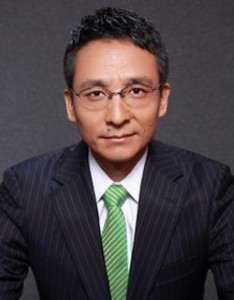Welcome to the first of a new section called Straight Talk, in which we take a hot topic and get frank and helpful responses from one general counsel and one expert with a law firm. Our first featured article looks at Chinese investment into the US, and takes views from both sides of the Pacific.

is chair of the ACC International Legal Affairs Committee and a member of the association’s global board of directors. He is also chief international counsel at Fidelity National Financial, and has a wealth of experience in the international financial services/investment sector
The Trump administration
Rivera: The unpredictability of this administration should be of great concern to any investor. An investor should not rely on promises made during the campaign. Decisions made by the current administration often lack input from those who have the proper experience and background.
Dai: Chinese businesses worry that Trump proposes to reverse the globalization process, which the Chinese economy has benefitted from very much since entering the WTO. However, so far it seems that there have not been many trade protection/revenge measures against Chinese enterprises, and China’s outbound direct investment to the US is still growing steadily.
Due diligence, including latest regulatory updates and possible pitfalls
Rivera: Due Diligence is necessary regardless of where the investment or expansion takes place. It is important to organize the due diligence so that it is relevant to the target country. Due diligence is always going to include an analysis of the laws and regulations. Other considerations include politics, culture, financial and exit strategy. The exit strategy is often ignored, but it is imperative to know your options if things do not go well. The due diligence team should consist of individuals with expertise in accounting, tax, business unit, etc. A quarterback should also lead the team. International negotiations run more smoothly when there is a team.
Dai: Due diligence is very important to Chinese investors since they are doing business in a very different political and economic culture. Through legal, technical and financial due diligence, they will be able to evaluate the virtue of the proposed investment, and better understand the way of doing business in the US. We always emphasize to our clients the importance of due diligence since most Chinese investors have very limited experience of doing business outside of China, and sometimes even encounter culture shock after understanding the findings from thorough due diligence. Furthermore, since the Trump administration claims it will significantly change US polices, it is advisable to conduct due diligence on the latest regulatory updates and possible regulatory changes.

is a senior partner with Jingtian & Gongcheng law firm in Beijing. He specializes in securities law and capital markets, cross-border M&A, real estate, infrastructure and mineral resources investment. In the area of securities and capital markets, Dai has advised some of the biggest domestic firms on H-Share or Red Chip offerings. He has also acted as international or PRC legal counsel in major cross-border M&A projects by Chinese enterprises
The US legal system and how it differs from China and others
Rivera: The Chinese legal system has been influenced by a number of social, cultural, political and historical aspects. China’s legal system is rooted in Confucianism, Daoism and legalism. China’s legal system has also been influenced by treaties signed with Western countries. The US system, with the exception of Louisiana, is based on British common law. Federal, state and local law can differ depending on the state and the federal district.
One of the benefits to working in the US is the impartiality of the judiciary. It is not perfect, but for the most part corruption is usually not a factor. Litigation and arbitration are expensive. In China, corruption in the judicial system is perceived to be under control. However, some Chinese lawyers believe that there is a higher degree of corruption with arbitration than in the courts. Enforcing rights in the US legal system is expensive.
Dai: The US and Chinese legal systems are quite different, business operation in China is heavily dominated by administrative policies and rules, and the court system plays a less important role. That is why having good relations with government and the relevant administrative authorities are very important, so as to survive selective enforcement of the law. Doing business in the US, Chinese investors must pay more attention to various compliance issues, since enforcement of the law will be more effective and take no economic and political considerations. It seems that a few Chinese investors have paid for expensive ‘tuition’ in the US for their mistakes in this regard.
You must be a
subscribersubscribersubscribersubscriber
to read this content, please
subscribesubscribesubscribesubscribe
today.
For group subscribers, please click here to access.
Interested in group subscription? Please contact us.


























